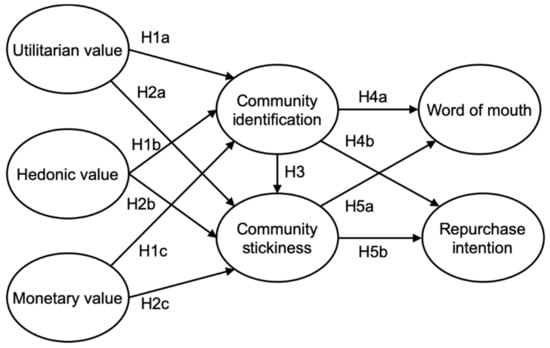The History and Evolution of the 92 Lottery
The Origins of the 92 Lottery
The 92 Lottery has its roots in the 1920s, when it was first introduced as a way for state governments to generate revenue. Over the years, the lottery has undergone numerous changes and expansions, becoming a multibillion-dollar industry that has become ingrained in the social and economic fabric of many communities.
The Expansion of the 92 Lottery
As the 92 Lottery has grown in popularity, it has expanded to include a variety of game formats, from traditional draw games to instant-win scratch-offs. This diversification has allowed the lottery to cater to a wider range of players and generate even more revenue for state governments.
The 92 Lottery’s Regulatory Environment
The 92 Lottery is a heavily regulated industry, with strict guidelines and oversight in place to ensure the integrity of the games and the fairness of the payouts. This regulatory environment has helped to build public trust in the lottery, but it has also created a complex web of rules and requirements that businesses must navigate in order to participate in the lottery ecosystem.
The Impact of the 92 Lottery on Local Businesses

Retail Outlets and the 92 Lottery
Retail outlets, such as convenience stores, gas stations, and grocery stores, are the primary points of sale for lottery tickets. These businesses benefit from the influx of customers who come to purchase lottery tickets, which can lead to increased foot traffic and sales. However, the costs associated with selling lottery tickets, such as equipment and maintenance, can also eat into a business’s profits.
Advertising and Promotions
The 92 Lottery is a major source of advertising and promotional opportunities for local businesses. Lottery jackpots and other high-profile events can provide a platform for businesses to reach a large audience and showcase their products or services. However, the competition for these opportunities can be fierce, and businesses must carefully navigate the rules and regulations to ensure that their marketing efforts are effective and compliant.
Supply Chain and Logistics
The 92 Lottery requires a complex supply chain and logistics network to distribute tickets and other materials to retail outlets. This can create opportunities for local businesses to participate in this supply chain, providing services such as transportation, warehousing, and distribution. However, the logistics of the lottery can also create challenges, such as the need to handle large amounts of cash and ensure secure delivery of sensitive materials.
Impact on Consumer Spending
The 92 Lottery can have a significant impact on consumer spending patterns, as players may allocate a portion of their discretionary income towards lottery tickets. This can lead to changes in the types of products and services that local businesses offer, as they adapt to the spending habits of their customers. However, the impact of the lottery on consumer spending can be complex and difficult to measure, as it can vary depending on factors such as the size of the jackpot and the overall economic conditions in the community.
Community Engagement and Sponsorship
The 92 Lottery can also provide opportunities for local businesses to engage with their communities through sponsorship of local events, charities, and other initiatives. These partnerships can help to build brand awareness and goodwill, while also supporting important community programs and services. However, the rules and regulations around lottery-related sponsorships can be complex and may limit the types of activities that businesses can engage in.
The Regulatory Landscape of the 92 Lottery

Licensing and Compliance Requirements
Businesses that wish to participate in the 92 Lottery ecosystem, whether as retailers, suppliers, or service providers, must navigate a complex web of licensing and compliance requirements. These requirements can include things like background checks, financial disclosures, and ongoing reporting obligations. Failure to comply with these requirements can result in penalties, fines, or even the revocation of a business’s lottery-related license.
Tax Implications
The 92 Lottery is a significant source of revenue for state governments, and businesses that participate in the lottery ecosystem must be aware of the tax implications. This can include things like sales tax on lottery ticket sales, income tax on lottery-related revenue, and specialized taxes or fees that are levied on lottery-related activities.
Responsible Gambling Initiatives
In recent years, there has been a growing focus on responsible gambling initiatives, which aim to protect consumers from the potential harms associated with problem gambling. These initiatives can have implications for businesses that are involved in the 92 Lottery ecosystem, as they may be required to implement certain measures, such as age verification, self-exclusion programs, and responsible gambling education.
Technological Innovations and the 92 Lottery
The 92 Lottery is constantly evolving, with new technologies and innovations being introduced to improve the player experience and enhance the efficiency of the lottery ecosystem. These changes can have significant impacts on local businesses, as they may need to invest in new equipment, software, or training to keep up with the latest trends and requirements.
Changing Consumer Preferences and the 92 Lottery
As consumer preferences and behaviors continue to evolve, the 92 Lottery must adapt to meet the changing needs and expectations of players. This can create both challenges and opportunities for local businesses, as they must be prepared to respond to shifts in consumer demand and preferences.
The Future of the 92 Lottery and Local Businesses
Emerging Trends and Opportunities
As the 92 Lottery continues to evolve, there are a number of emerging trends and opportunities that local businesses may be able to capitalize on. These include the growth of online and mobile lottery platforms, the development of new game formats and features, and the expansion of lottery-related sponsorship and community engagement initiatives.
Challenges and Limitations
At the same time, the 92 Lottery also faces a number of challenges and limitations that may impact local businesses. These include the ongoing regulatory environment, the potential for increased competition from other forms of gambling and entertainment, and the need to balance the interests of players, businesses, and the broader community.
Strategies for Success
In order to navigate the complex landscape of the 92 Lottery and maximize the benefits for their businesses, local entrepreneurs and business owners will need to develop a range of strategies and approaches. This may include things like investing in technology and infrastructure, building strong partnerships with lottery-related suppliers and service providers, and engaging in effective marketing and promotional activities.
The Role of Policy and Regulation
Ultimately, the future of the 92 Lottery and its impact on local businesses will also be shaped by the policy and regulatory environment that governs the industry. Policymakers and regulators will need to balance the competing interests of players, businesses, and the broader community, and ensure that the lottery ecosystem remains fair, transparent, and responsive to the needs of all stakeholders.
FAQs
How does the 92 Lottery impact consumer spending?
The 92 Lottery can have a significant impact on consumer spending patterns, as players may allocate a portion of their discretionary income towards lottery tickets. This can lead to changes in the types of products and services that local businesses offer, as they adapt to the spending habits of their customers. However, the impact of the lottery on consumer spending can be complex and difficult to measure, as it can vary depending on factors such as the size of the jackpot and the overall economic conditions in the community.
What are the main regulatory requirements for businesses participating in the 92 Lottery ecosystem?
Businesses that wish to participate in the 92 Lottery ecosystem, whether as retailers, suppliers, or service providers, must navigate a complex web of licensing and compliance requirements. These requirements can include things like background checks, financial disclosures, and ongoing reporting obligations. Failure to comply with these requirements can result in penalties, fines, or even the revocation of a business’s lottery-related license.
How can local businesses leverage the 92 Lottery for marketing and promotional opportunities?
The 92 Lottery can provide a platform for local businesses to reach a large audience and showcase their products or services through advertising and promotions. Lottery jackpots and other high-profile events can be particularly effective for this type of marketing, but businesses must carefully navigate the rules and regulations to ensure that their efforts are effective and compliant.
What are the tax implications of participating in the 92 Lottery ecosystem?
Businesses that participate in the 92 Lottery ecosystem must be aware of the tax implications, which can include things like sales tax on lottery ticket sales, income tax on lottery-related revenue, and specialized taxes or fees that are levied on lottery-related activities. Businesses should consult with tax professionals to ensure that they are properly addressing these obligations.
How can local businesses adapt to emerging trends and technologies in the 92 Lottery industry?
As the 92 Lottery continues to evolve, local businesses will need to be prepared to adapt to new trends and technologies, such as the growth of online and mobile lottery platforms, the development of new game formats and features, and the expansion of lottery-related sponsorship and community engagement initiatives. Businesses that invest in technology and infrastructure, build strong partnerships with lottery-related suppliers and service providers, and engage in effective marketing and promotional activities will be well-positioned to succeed in this rapidly changing environment.
Conclusion
The 92 Lottery has been a fixture in many communities for decades, and its impact on local businesses is a complex and multifaceted issue. While the lottery can provide opportunities for increased foot traffic, advertising and promotional opportunities, and community engagement, it also comes with a range of regulatory and compliance requirements, as well as potential challenges related to consumer spending patterns and supply chain logistics.
As the lottery industry continues to evolve, local businesses will need to be proactive in adapting to emerging trends and technologies, while also navigating the complex regulatory landscape. By developing effective strategies and partnerships, and engaging with policymakers and regulators, local businesses can position themselves to thrive in the 92 Lottery ecosystem and contribute to the overall economic and social well-being of their communities.

